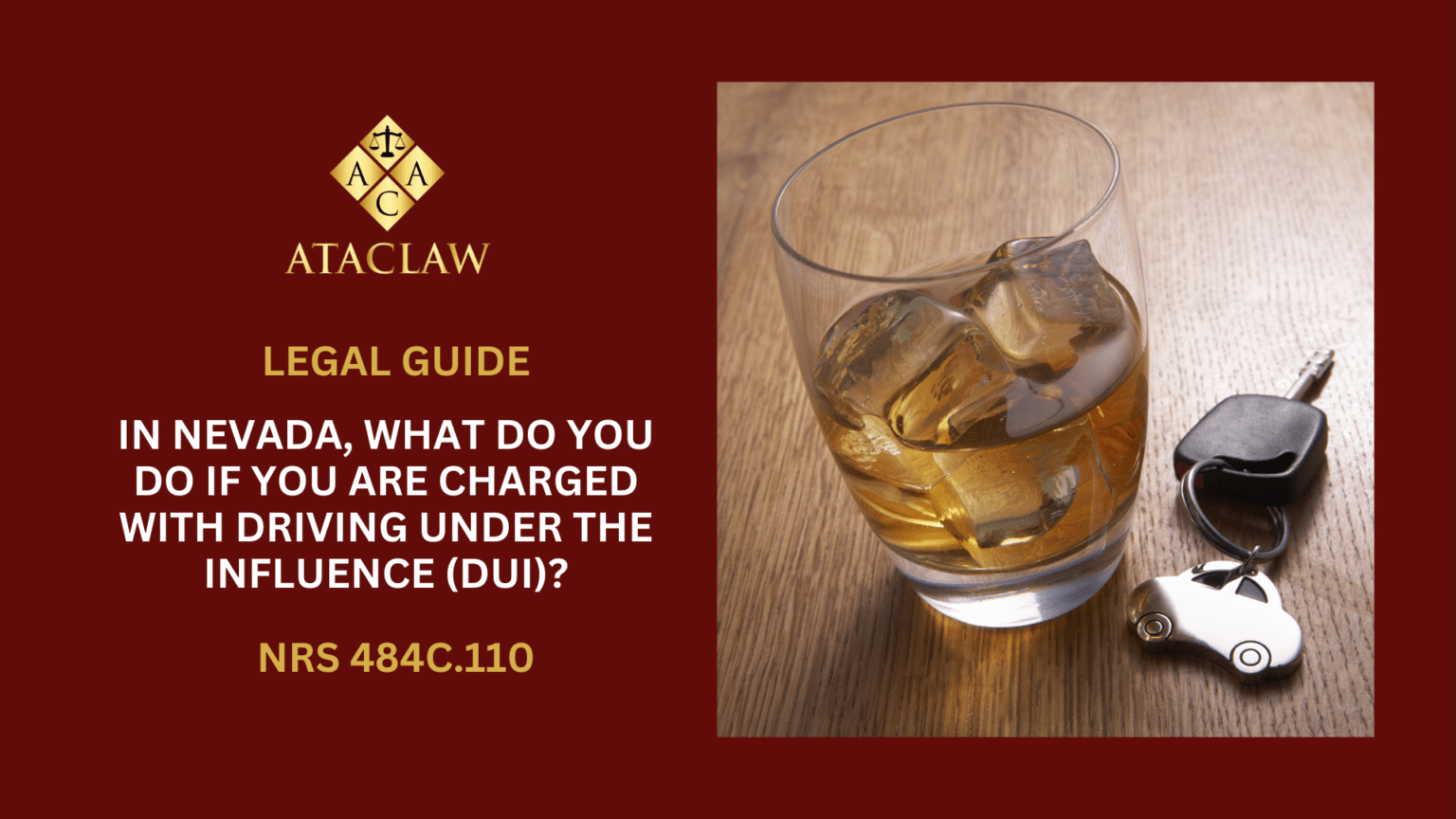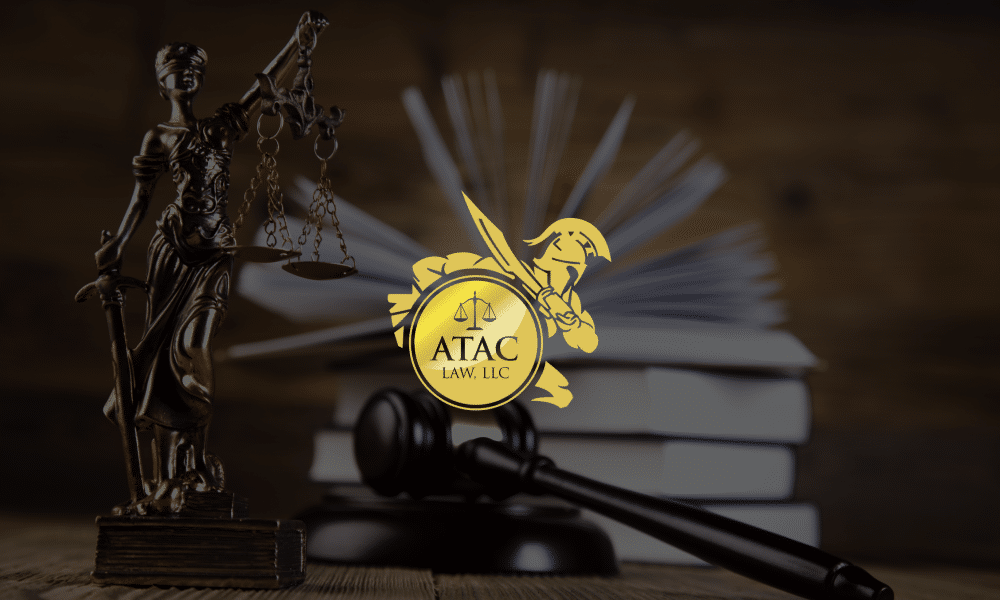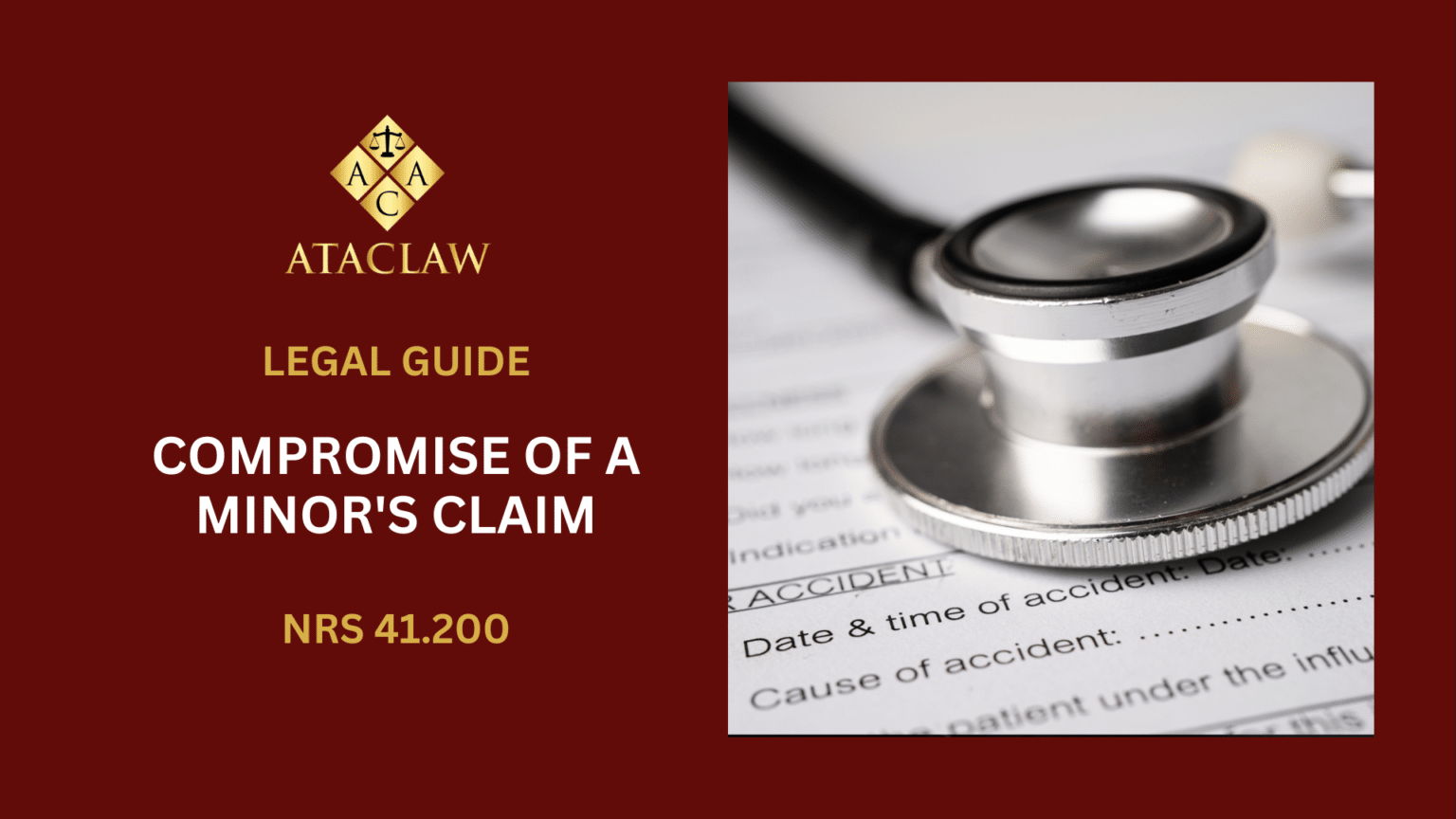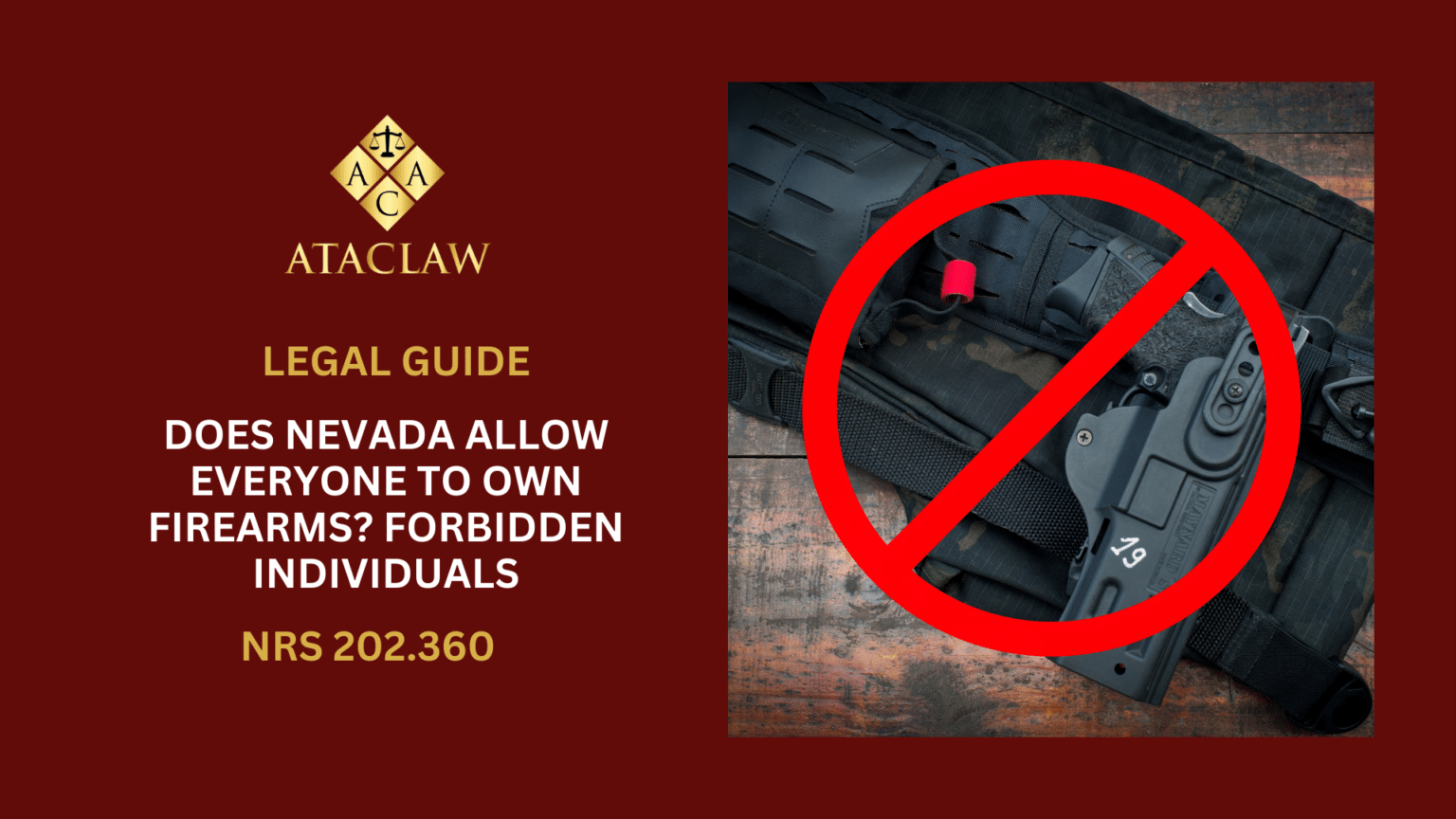Driving under the influence (DUI) laws are stringent in Nevada, aiming to reduce road accidents and promote public safety. ATAC LAW sheds light on a common question: Can you be charged with DUI without being visibly impaired or “drunk”? The short answer is yes, and here’s why.
What constitutes a DUI Offense?
Nevada Revised Statute 484C.110 is comprehensive in defining what constitutes a DUI offense. It states that driving an automobile while impaired by drugs or alcohol, having a blood alcohol content (BAC) of 0.08% or higher, or with illegal drug levels in the driver’s blood, is considered DUI. It’s crucial to note that a driver can be deemed in violation if any of these conditions are met, regardless of their perceived level of impairment.
Alcohol Impairment: Most are familiar with the BAC threshold of 0.08% or higher. Yet, it’s possible to face DUI charges with lower BAC levels if your driving is impaired by alcohol consumption.
Drug Impairment: The law also addresses driving under the influence of drugs (prescription, over-the-counter, or illegal) and the combined influence of drugs and alcohol. Given the variety of substances and their effects, even a legally permitted drug, if found impairing one’s ability to drive, can lead to DUI charges.
Prohibited Substance Levels: Specific thresholds have been set for the presence of illegal drugs in one’s system while driving, including, but not limited to, amphetamines, cocaine, heroin, and marijuana.
| Prohibited substance | Urine (nanograms per milliliter) | Blood (nanograms per milliliter) |
| (a) Amphetamine | 500 | 100 |
| (b) Cocaine | 150 | 50 |
| (c) Cocaine metabolite | 150 | 50 |
| (d) Heroin | 2000 | 50 |
| (e) Heroin metabolite:(1) Morphine(2) 6 – monoacetyl morphine 1 | 200010 | 5010 |
| (f) Lysergic acid diethylamide | 25 | 10 |
| (g) Methamphetamine | 500 | 100 |
| (h) Phencyclidine | 25 | 10 |
| Prohibited substance | Blood (nanograms per milliliter) |
| (a) Marijuana (delta-9-tetrahydrocannabinol) | 2 |
| (b) Marijuana metabolite (11-OH-tetrahydrocannabinol) | 5 |
Could You Be Arrested for DUI in Nevada for Medication or Minimal Alcohol?
Three distinct conditions could lead to DUI charges in Nevada:
- Operating a vehicle with a BAC of 0.08% or more, irrespective of one’s driving ability being impaired.
- Driving with specific illegal drug concentrations in the bloodstream, again, regardless of visible impairment.
- Being under the influence of either alcohol or drugs to the extent it affects your ability to drive safely, even if your BAC or drug levels don’t exceed legal limits.
The Intricacies of DUI Related to Drug Use
A pivotal point to understand is that the legality of possessing a drug does not exempt a driver from DUI charges if they’re found impaired at the wheel. This holds true even for prescription drugs recommended by a doctor or marijuana, which is legally allowed for adults over 21 in private settings in Nevada. Essentially, impairment from any drug, legal or otherwise, while driving, constitutes a DUI offense.
Unique Considerations in DUI Alcohol Cases
An unusual defense in alcohol-related DUI cases is if an individual consumed alcohol after driving but before arrest and subsequent testing, potentially leading to inaccurately high BAC readings. However, refusal to undergo breath or blood tests post-arrest can lead to forced testing by law enforcement through a judicial warrant.
Could I Face Jail Time for a DUI in Nevada?
Driving under the influence (DUI) in Nevada carries significant penalties, including the potential for jail time, depending on the specifics of the case and the individual’s past driving history.
Nevada takes DUI offenses very seriously, with the penalties increasing with repeat offenses within certain time frames. Here’s what you might face if convicted:
First-Time DUI: For those facing their first DUI conviction within a seven-year period, the likelihood of jail time can often be avoided. Requirements typically include:
- Paying a fine
- Completing a DUI education program
- Attending a victim impact panel
- Suffering a 180-day revocation of your driver’s license
- Remaining arrest- and citation-free while the case is open.
Second-Time DUI: If you are convicted of a second DUI within seven years, the law mandates a minimum of 10 days in jail.
Third or Subsequent DUI: A third or additional DUI conviction within seven years is more severe, with a minimum requirement of one year in prison.
For some cases, particularly those involving recurrent issues with alcohol, you may have the option to enroll in an intensive rehabilitation program known as DUI Court. Successfully completing this program can sometimes serve as an alternative to incarceration, focusing on recovery and rehabilitation rather than solely punitive measures.
How Can I Challenge DUI Charges in Nevada?
- Medical Conditions and High BAC: Certain medical conditions, such as acid reflux or GERD, can interfere with breathalyzer tests, leading to inaccurately high BAC readings. Highlighting these conditions can question the credibility of BAC results.
- Questioning the Initial Stop: A foundational defense involves challenging the reason for the traffic stop. Law enforcement must have a valid reason, known as “reasonable suspicion,” to pull you over. Similarly, there must be adequate “probable cause” for an arrest. Without these, the charges may be contestable.
- Faulty Testing Equipment: Another approach is to scrutinize the accuracy of the breath and blood testing equipment used. Defective or improperly calibrated devices can produce false results, offering grounds to challenge the evidence.
- Disputing Field Sobriety Tests: Errors in the administration of field sobriety tests can be a potent defense. Incorrect instructions or misinterpretation of the results can invalidate the evidence against you.
- Medical Episodes Mistaken for Intoxication: In some cases, medical episodes (e.g., diabetic episodes) can mimic signs of intoxication. Demonstrating that a medical condition, rather than impairment, was responsible for your behavior, can be a powerful defense.
Can My DUI Records Be Sealed in Nevada?
Misdemeanor DUI Convictions
For misdemeanor DUI offenses in Nevada, the record must be maintained for a period of seven years before you’re eligible to apply for a record seal. This timeline ensures that the conviction affects legal and background checks for a significant duration before you have the opportunity to clear your record.
Felony DUI Convictions
The stakes are higher with felony DUI convictions, as these are deemed more severe offenses. Unfortunately, in Nevada, a conviction of this magnitude is permanent and cannot be sealed. This lifetime record can have lasting implications on employment, housing, and various other aspects of one’s life.
Alternative Plea to Misdemeanor Reckless Driving
In some instances, individuals charged with DUI may be offered an alternative plea to misdemeanor reckless driving. If accepted, this conviction bears a shorter mandatory duration on your record — only one year — before you can petition for a seal. This is considerably shorter than the seven-year period for misdemeanor DUI convictions and can be a more favorable outcome for those eligible.
Dismissed DUI Cases
For DUI charges that are ultimately dismissed, the pathway to clearing your record is much more straightforward. You can petition to have the record sealed immediately, effectively eliminating the charges from your record as if they had never occurred.
Facing DUI charges can be daunting, primarily due to the complexities and strictness of Nevada’s DUI laws. It’s crucial to have robust legal representation to navigate these charges effectively. ATAC LAW specializes in defending individuals against DUI charges, leveraging a deep understanding of Nevada’s DUI regulations to protect your rights.
If you find yourself or someone you know facing DUI charges, it’s essential to act swiftly. Reach out to ATAC LAW for expert legal guidance and dedicated support to navigate through these challenging times.
For further legal assistance and to discuss your case with an expert, don’t hesitate to contact ATAC LAW.




